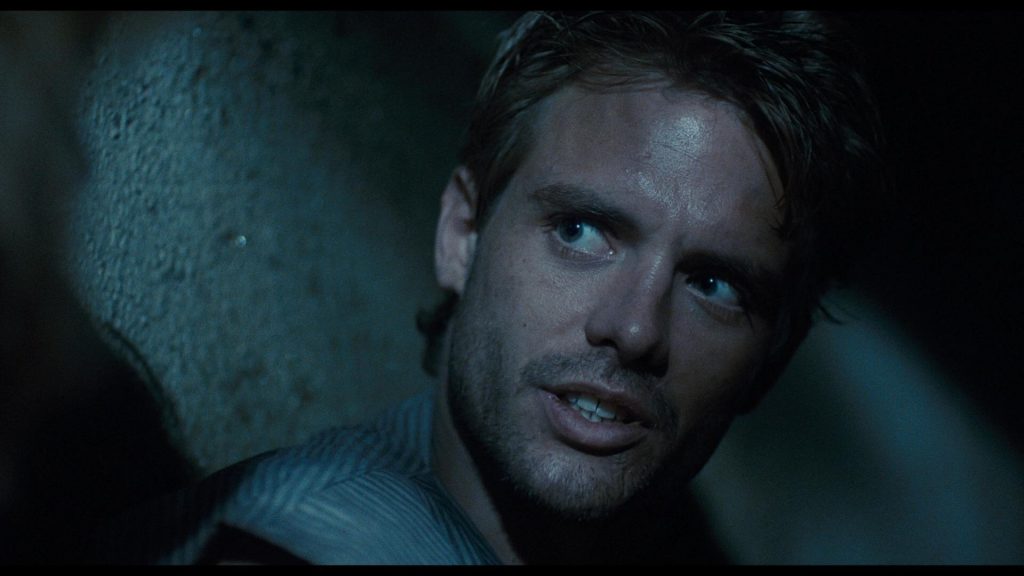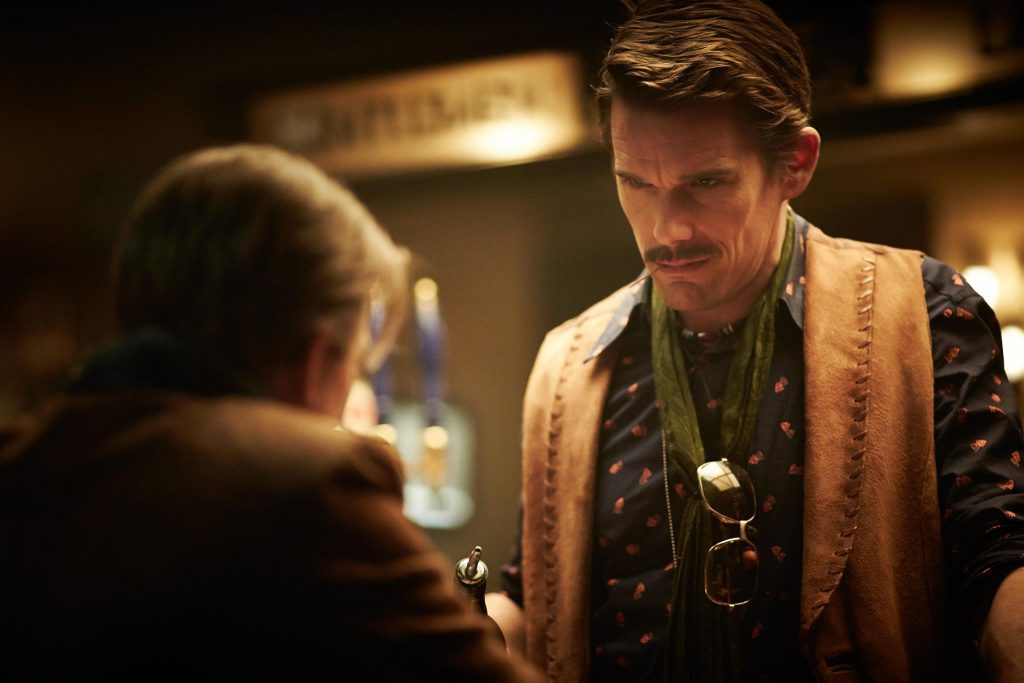Time travel is my favorite genre of fiction. It allows us to examine the consequences of our choices and the questions of free will. From the silly to the complex, I find myself invested in how storytellers interpret the concept. How does time travel work? And does the story adhere to the established rules? The answers are always fascinating.
Because I love time travel so much and because this is my website and I can do what I want, I decided to create a series of articles looking at the various types of time travel fiction. Each article will focus on a specific “genre” of time travel and the film/television/literature set within. Some stories will fall into various genres, so I’ll do my best to make the most sense of them.
In Let’s Do The Time Warp Again, we examined the basic time travel genre of “mission in the past.” Now, we go a step further and investigate what happens when time travel gets messy. Without further ado, I present the second article of the Time for Time Travel series…
The Paradox
A time travel paradox occurs when a past event only happens because of a future event, which in turn was caused by the past event. This creates a logical contradiction, a chicken and the egg scenario if you will. Which came first? Well, neither. They just are.
Paradoxes create some really fascinating stories. How does the storyteller implement a paradox? Do we see it coming from a mile away? And what is being said about free will? If things simply are the way they are, then can we still make choices?
We’ll be taking a look at a few examples. The first is the most basic example of a paradox.
The Terminator

The Paradox: John Connor’s dad is from the future.
Is it actually a paradox?: We can assume so.
In The Terminator, Kyle Reese travels back in time to prevent the death of Sarah Connor, mother of future resistance leader John Connor. While there, hanky panky happens between Kyle and Sarah. Surprise, she gets pregnant with baby John.
The Terminator provides the classic example of a time travel paradox. Kyle, sent to the past by John Connor, ends up creating John Connor. It works well, because it is simple. Kyle never returns to the future, so there are no loose ends on that end. Also, future John Connor may or may not know that Kyle is his farther. He is sending Kyle on a mission to the past to save his mother, not impregnate her (so we assume). The paradox is easy to accept because it’s all fairly coincidental.
But is it actually a paradox? Well, that seems to be one of the underlying themes of the Terminator franchise. Can we change the future to prevent the robots from taking over? Taken purely as an individual movie, it is safe to assume it is a true paradox. John Connor only exists because Kyle traveled back in time.
It would be harder to prove the opposite, that John Connor would have existed whether or not Kyle traveled back in time. Remember, future John gave Kyle a photo of Sarah, causing Kyle to fall in love with her. That photo was taken at the end of The Terminator, which appears to close the loop. Could Sarah have had another child named John at some other point who grew up to lead a resistance? Sure. But then he wouldn’t have had that photo to give to Kyle in the first place. We can assume then that the John who gives the photo to Kyle is the one Kyle and Sarah created.
Yes, there are a lot of assumptions, but I think it is safe to say that The Terminator was intended to be a paradox.
Looper

The Paradox: Joe creates the Rainmaker, the man he is trying to kill.
Is it actually a paradox?: No.
I think Looper has so many interesting time travel concepts, but unfortunately it breaks just about every time travel rule, even within its own framework. It’s a fun film with a lot of action, but it doesn’t hold up to scrutiny.
I love the idea of a future crime syndicate sending bodies to the past to be disposed of. The concept makes perfect sense for an organization wanting to get rid of bodies and is a unique storytelling device. But how Looper implements the idea doesn’t hold water. A “looper” kills victims sent from the future. Eventually, the “looper” kills the final victim, himself. Again, this all sounds great, but why would it take any more than a few minutes? They can send people back to any point in time, so why not send them right after the other? Why the large chunks of time between executions? Maybe to dispose of the bodies properly? Even so, it doesn’t sound like it would be a very long term gig.
The inherent problem with Looper is that it acts as if each timeline has a “now”. This is most apparent when the crime syndicate starts lopping off limbs of one character only for us to watch his limbs disappear in the future. It’s an amazing visual that makes zero sense. There are not multiple “nows”. If they chopped off some limbs, the limbs should have always been gone from that point forward. But even if that isn’t the case (multiple timelines perhaps?) then how is it decided when in the future those changes take affect? Again, it’s an awesome idea but it doesn’t follow common sense.
But the biggest mark on Looper’s record is the climatic reveal that Joe in fact created the man he has been trying to kill. Superficially, it’s a shocking discovery. Once you think about it more, it doesn’t work within the confines of the film.
In the first timeline we see, past Joe kills his future-self as ordered. He lives his good life, but then the Rainmaker shows up and ruins everything. So Joe travels back in time to kill the Rainmaker before he grows powerful, avoiding being killed by past Joe. Through a series of events, past Joe realizes future Joe’s actions will eventually send the Rainmaker on his evil path. Past Joe kills himself (and future Joe with him) to stop it.
Can you find the flaw in the story? In the original timeline, the Rainmaker comes to power and ruins Joe’s life. Except, there wasn’t any future Joe to cause the Rainmaker to turn evil, because Joe killed his future self in that timeline. So… what happened then? How did the Rainmaker become evil? It certainly wasn’t due to future Joe’s actions, cuz he dead. Unfortunately, the only explanation is a poorly constructed story.
Looper is a fun movie and I enjoyed it when it came out, but you do have to glaze over its many time travel faults.
Predestination

The Paradox: Ethan Hawke is everyone.
Is it actually a paradox?: Yes, even if mind-boggingly so.
Predestination is pretty much the ultimate paradox film. Not only are four of the characters the same person, but they are also their own parents. They/he/she is some sort of temporal paradoxical being… But for something so confusing, the film lays it out in a fairly logical manner that isn’t too hard to understand.
I don’t even know where to begin and that is why this is such a great example of a paradox. There is no natural beginning. There are two distinct stories in Predestination, each focusing on two of the same person (stay with me). The plot threads are not independent by any means, but there is some natural separation.
The first focuses on Jane and John. Jane falls in love with John and gets pregnant. John then abandons her (typical). When Jane gives birth, it is discovered Jane has both male and female reproductive organs. Due to complications with the pregnancy, she loses her female organs and must now become a man. Oh, also someone steals the baby at some point, which is a bit of a downer as you’d expect. Jane, now an older depressed man, meets a bartender who happens to be a time traveler (as most bartenders are). He convinces Jane to go back in time to get revenge on John. Once there, Future-Jane sees Past-Jane and realizes she has become John. She falls in love with herself. Repeat.
The bartender is a temporal agent who is out to stop a time traveling terrorist named the Fizzle Bomber. We eventually learn that the Fizzle Bomber (whose name I cannot take seriously) is actually future-bartender. You see, all this time travel stuff messes with your brain and makes you crazy, which is what will eventually happen to the bartender.
But, the bartender is also the one who stole the Jane’s baby. In fact, he brought it back in time. Because Jane’s baby is in fact Jane herself (and in turn John). Not only that, but John is actually the bartender as well. You see, John’s face gets blown off at some point and so he gets a new Ethan Hawke one.
So, the main character is basically every character in the film and somehow it sort of makes sense. It is the very definition of a paradox. The bartender, after killing the Fizzle Bomber, vows to never become him. Unfortunately, the entire film says otherwise. Everything is predetermined.
Does it make sense? Logically, the events all line up pretty well. The only quibble you could make is if the character(s) would act the way they do knowing their future (which they sometimes do). This is especially important regarding the bartender’s change into the Fizzle Bomber. Knowing he becomes something he does not want to be, why wouldn’t he just… avoid that? But that is the major theme of Predestination. You can’t avoid your own future. You can’t change things. They are the way they are.
I highly recommend Predestination to anyone who loves time travel films. But if you read this far, I hope you’ve already seen it because I spoiled everything.
***
That’s it for Part 2 of Time for Time Travel. I have at least two more parts planned, so stay tuned. Plenty of time travel shenanigans left.

One Reply to “Time for Time Travel: Paradoxes Just Are”